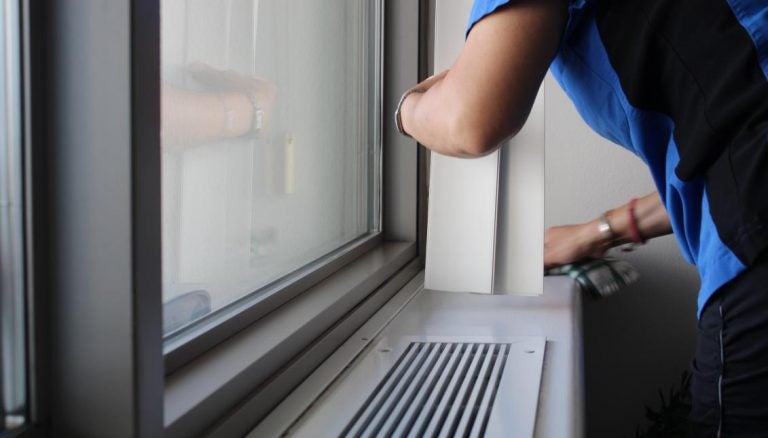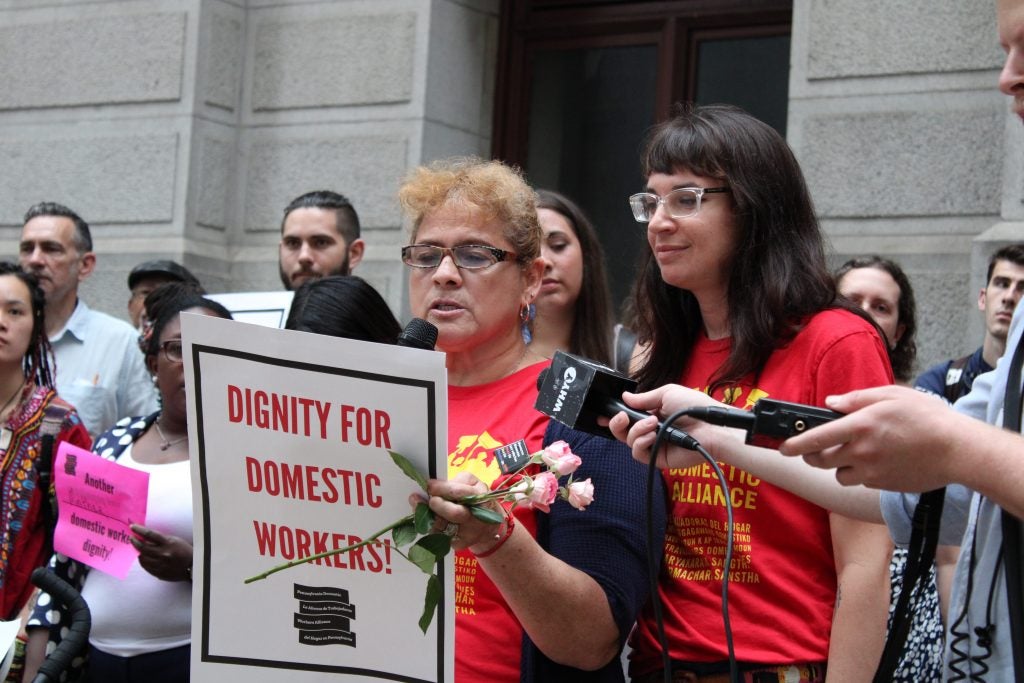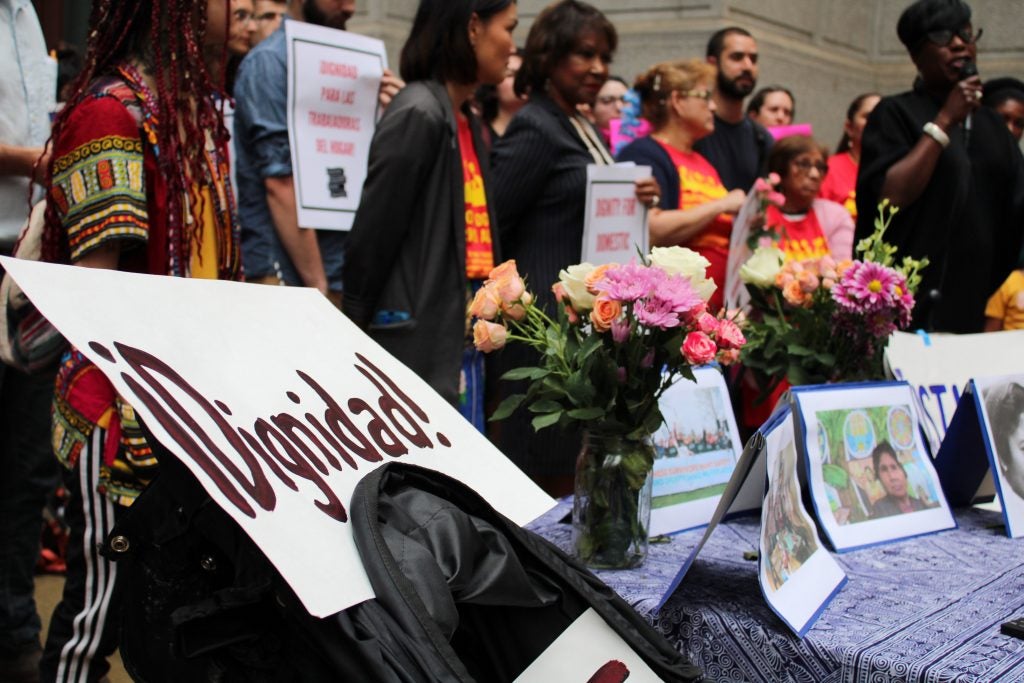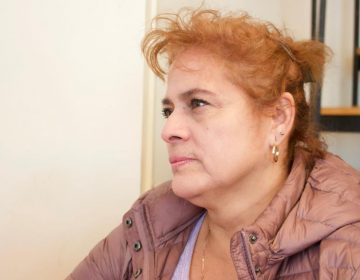Domestic workers in Philadelphia fight for rights, recognition
What will the Philadelphia Domestic Worker Bill of Rights change — and why has it taken so long for one of the fastest-growing sectors in the U.S. to have labor protections?

Lucy, a domestic worker, cleans the home of one of her clients in late July 2019. (Emily Neil/AL DÍA News)
This article originally appeared on AL DÍA.
—
They work in one of the most vulnerable sectors in the U.S. labor force. But Lucy, María del Carmen Díaz and other domestic workers have decided to challenge that, and demand rights for the estimated 16,000 nannies, housekeepers, and caretakers in Philadelphia.
As part of the Pennsylvania Domestic Workers Alliance (PDWA), founded by community organizer Nicole Kligerman in August 2018, the domestic workers you’ll hear from in this episode have organized to introduce legislation to Philadelphia City Council for a Domestic Worker Bill of Rights, and have spoken out about their own experiences of workplace abuses. If the bill is approved this fall session, Philadelphia will become the largest U.S. city to pass a Domestic Worker Bill of Rights.

It is a struggle happening nationwide, as members of the National Domestic Workers Alliance, of which the PDWA is an affiliate, are also pushing for legislation at the federal level to ensure rights for domestic workers throughout the country. In July, Sen. Kamala Harris (D-CA) and Rep. Pramila Jayapal (D-WA) introduced the Domestic Worker Bill of Rights Act, which would establish basic legal protections for all domestic workers in the U.S.
The battle for the sector’s rights has been going on for decades, dating to the work of Dorothy Bolden, a black domestic worker and civil rights activist in Atlanta, who began organizing in the 1960s to demand better wages and greater protections.

But domestic workers, organizers, and legislators alike say that changing the working conditions and rights afforded to domestic workers won’t happen overnight with the approval of the bill of rights. It will require a long-term effort to educate employers/clients of domestic workers, and examine the systemic issues which contribute to wage theft, discrimination, sexual harassment, and other workplace abuses that many domestic workers face.
On Oct. 22, the Labor and Civil Service Committee of Philadelphia City Council will hold a vote on the proposed Philadelphia Domestic Worker Bill of Rights. If approved, the bill will go to a full vote later in the fall session of City Council.
 This article is part of Broke in Philly, a collaborative reporting project among more than 20 news organizations, focused on economic mobility in Philadelphia. Read all of our reporting at brokeinphilly.org.
This article is part of Broke in Philly, a collaborative reporting project among more than 20 news organizations, focused on economic mobility in Philadelphia. Read all of our reporting at brokeinphilly.org.
WHYY is your source for fact-based, in-depth journalism and information. As a nonprofit organization, we rely on financial support from readers like you. Please give today.





